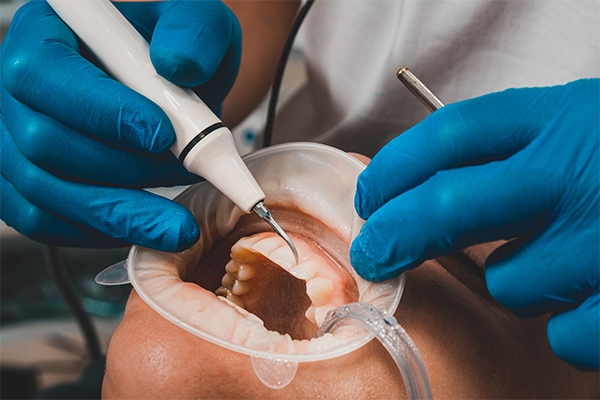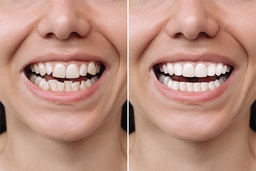Why You Need Dental Scaling: Understanding the Dangers of Plaque and Tartar

Brushing your teeth every day is important, but it’s not always enough to keep your mouth completely clean.
Some areas—such as between the teeth and along the gumline—are difficult to reach with a toothbrush.
When food debris isn’t cleaned properly, it accumulates and forms plaque and tartar (also known as calculus).
What are plaque and tartar?
Plaque is a thin film made up of saliva, bacteria, and proteins in the mouth. When you eat, food particles, acids, and sugars stick to this layer, forming what we know as dental plaque.
If not cleaned thoroughly, minerals in the saliva harden the plaque, turning it into tartar—a solid deposit that can’t be removed just by brushing.
The impact of plaque and tartar buildup

Bacteria living in plaque produce acids that erode tooth enamel and lead to cavities. Additionally, accumulated plaque can lead to gum inflammation (gingivitis) and bad breath.
Healthy gums usually fit snugly around the teeth and protect them from bacteria. However, when plaque and tartar build up, the gums loosen, forming “pockets” where bacteria can thrive and worsen infections.
In healthy conditions, the gum pocket depth typically ranges from 1 to 3 millimetres. If pockets reach 4 millimetres or deeper, it may indicate gum disease.
At this stage, you might notice bleeding gums, persistent bad breath, or loose teeth.
Dental scaling procedure

To remove plaque and tartar buildup, a professional dental procedure called scaling is required.
Scaling involves cleaning the teeth using special tools that reach below the gumline to remove plaque, tartar, and bacteria that can’t be eliminated by brushing alone.
Dentists use an ultrasonic scaler that emits gentle vibrations and water spray to break up and remove deposits. After scaling, the teeth are polished to smooth the surface, making it more difficult for plaque to adhere again.
Benefits of dental scaling

1. Prevents gum disease
Plaque and tartar buildup can lead to gingivitis, which may progress to periodontitis if left untreated. Scaling removes harmful deposits, helps prevent gum disease, and keeps gums healthier.
2. Reduces the risk of tooth loss
Advanced gum disease can loosen teeth and eventually cause tooth loss. Regular scaling strengthens and maintains healthy gums, lowering the risk of tooth loss.
3. Keeps breath fresh
Bad breath (halitosis) often results from bacteria and trapped food particles in plaque and tartar. Scaling removes these causes, leaving your breath fresher and boosting your confidence.
4. Improves oral hygiene
Scaling provides a deep clean that brushing and flossing alone can’t achieve. It removes stubborn deposits in hard-to-reach areas, improving overall oral hygiene.
5. Prevents tooth sensitivity
Plaque and tartar buildup can expose tooth roots, increasing sensitivity. Removing these deposits through scaling helps protect sensitive areas and makes eating more comfortable.
When should you get scaling done?
Generally, dental scaling is recommended every six months. However, individuals at higher risk of tartar buildup—such as smokers, people with diabetes, or those with poor oral hygiene—may need it more frequently, as advised by a dentist.
Regular scaling not only keeps your teeth cleaner and brighter but also prevents gum disease, bad breath, and other oral health problems.
Don’t wait until your gums bleed or bad breath appears. Schedule a dental check-up and routine scaling at a trusted dental clinic to maintain your oral health and hygiene.



